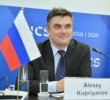Silenced Voices, Shifting Power: Mongolian Civil Society, Geopolitics, and the USAID Funding Freeze
The abrupt suspension of U.S. Agency for International Development (USAID) funding by the new Donald Trump administration in early 2025 has cast a dark shadow over Mongolia’s civil society and geopolitical balance.
The aid freeze is affecting many local actors who were delivering essential services and advocacy support on sensitive and often overlooked social issues critical to human rights and democracy. While Mongolia has made significant progress since it transitioned to democracy in 1990, certain social issues remain marginalized due political or cultural sensitivities. Projects and programs tackling these issues, including religious freedom, human trafficking, freedom of expression, and rural civic space, are now in funding crises.
What does the aid freeze mean on a practical level? More broadly, what does it mean for the geopolitical balance Mongolia maintains?
Already Silent Issues at Risk of Disappearing
The Youth Policy Watch Group, a local NGO that works on human rights, gender, and governance by utilizing youth-led monitoring and accountability tools, pioneered a project to map out the landscape of religious civil society groups. This initiative aimed to promote peaceful coexistence and collaboration with diverse religious actors, including the mainstream Buddhist monasteries, Christian groups, and Muslim minorities. The project had also planned to build the knowledge and capacity of government employees on religious freedom, addressing critical research and data gaps to promote evidence-based legal and policy decisions.
The 2023 ACN International report highlighted recurring issues on the registration of religious organizations, such as legal and social barriers faced by religious minorities in the country. This underscores the importance of the watch group’s initiative, which was 70 percent complete before being fully halted by the USAID freeze.
This leaves a significant knowledge gap in promoting religious understanding and coexistence. Youth Policy Watch Group’s director, Mandkhaikhatan Tsevegmid, shared:
Jumping into this topic in itself was a big risk for us, as nobody talks about this issue in Mongolia. But with support from USAID and its partners – the only donor entity bold enough to fund such sensitive issues – we took the leap despite social resistance and organizational risks. Now that is gone. It is regretful because it was the first of its kind in Mongolia and this issue could........© The Diplomat






















 Toi Staff
Toi Staff Tarik Cyril Amar
Tarik Cyril Amar Andrew Mitrovica
Andrew Mitrovica Sharona Margolin Halickman
Sharona Margolin Halickman Rachel Marsden
Rachel Marsden Patrick Gathara
Patrick Gathara Belen Fernandez
Belen Fernandez Gideon Levy
Gideon Levy Alexey Kupriyanov
Alexey Kupriyanov
